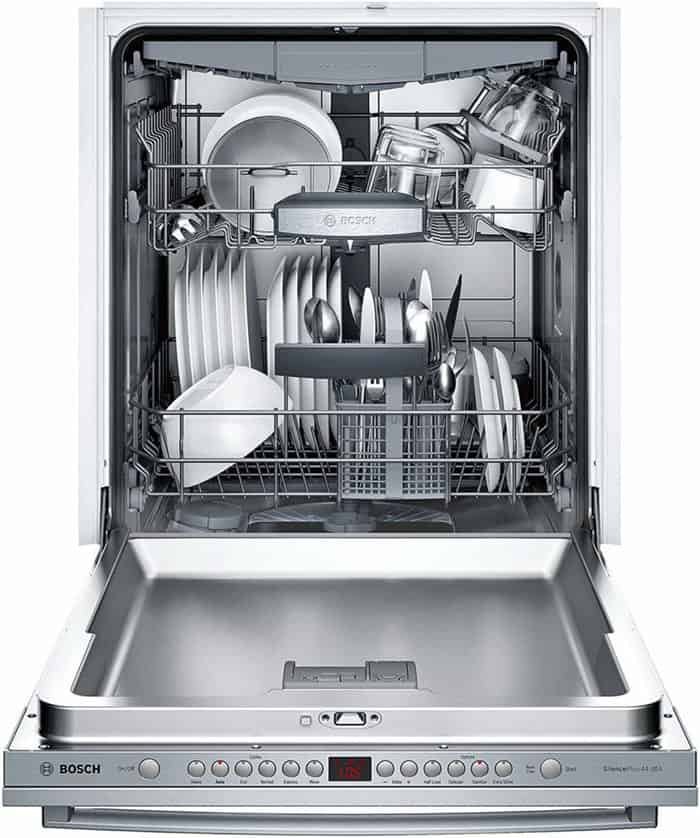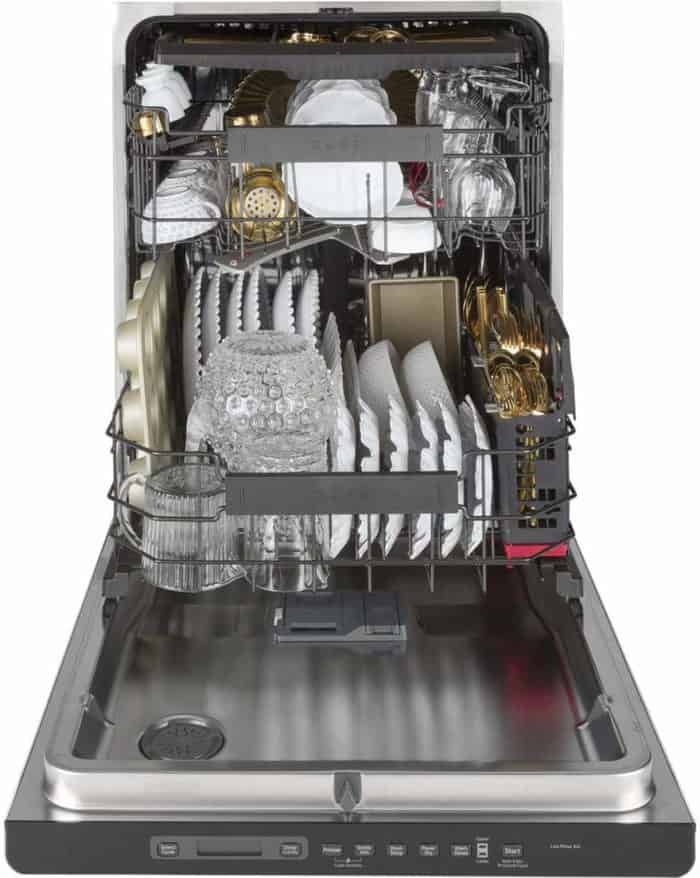Maintaining the optimal performance of your dishwasher requires a deep understanding of the various components and materials that contribute to its efficiency.
One common question among homeowners is whether normal salt can be used in a dishwasher. This article delves into the intricacies of dishwasher maintenance, the role of salt, and why using the correct type of salt is crucial for your dishwasher’s longevity and performance.

Table of Contents
Can You Use Normal Salt in a Dishwasher?
No, it is not recommended to use normal table salt in a dishwasher. Dishwasher salt, also known as water softening salt or sodium chloride, is specifically designed for use in dishwashers to help prevent limescale buildup and improve the efficiency of the machine. Using regular table salt can potentially damage the dishwasher and lead to poor cleaning results.
Dishwasher salt works by regenerating the ion exchange resins in the water softening system of the dishwasher, which helps to remove minerals from hard water that can cause spots and streaks on dishes.
It is important to follow the manufacturer’s instructions and only use designated dishwasher salt to ensure optimal performance and longevity of your appliance.
Understanding the Role of Salt in Dishwashers
Dishwasher salt plays a pivotal role in the proper functioning of your dishwasher. Its primary function is to regenerate the ion exchange resins in the water softener unit.
These resins are responsible for removing calcium and magnesium ions from the water, which are the primary causes of water hardness.
Hard water can lead to several issues, including limescale buildup, which can damage the internal components of the dishwasher and reduce its efficiency.
How Dishwasher Salt Works
Dishwasher salt is specially formulated to work with the water softener unit. When the ion exchange resins in the softener become saturated with calcium and magnesium ions, they need to be recharged with sodium ions.
This is where dishwasher salt comes into play. The large granules of dishwasher salt dissolve slowly, providing a steady supply of sodium ions, which replace the calcium and magnesium ions on the resins, effectively softening the water.

The Difference Between Dishwasher Salt and Normal Salt
While it might be tempting to use normal table salt or rock salt in your dishwasher, there are significant differences that make them unsuitable substitutes for dishwasher salt.
Purity and Additives
Normal table salt contains additives such as iodine, anti-caking agents, and other chemicals that can interfere with the operation of your dishwasher.
These additives can cause clogs, reduce the effectiveness of the water softener, and even leave a residue on your dishes.
Dishwasher salt, on the other hand, is pure sodium chloride without any additives, ensuring optimal performance and preventing potential damage to your dishwasher.
Granule Size
The granule size of normal salt is much smaller than that of dishwasher salt. Fine salt granules can cause blockages in the dishwasher’s water softener unit, leading to malfunctions and costly repairs.
Dishwasher salt is coarser, allowing it to dissolve slowly and evenly, which is crucial for maintaining the efficiency of the water softener.
Potential Consequences of Using Normal Salt
Using normal salt in your dishwasher can lead to several problems that can affect both your dishwasher and your dishes.
Clogged Water Softener Unit
As mentioned earlier, the fine granules of normal salt can clog the water softener unit, preventing it from functioning correctly.
This can lead to hard water deposits inside the dishwasher, reducing its efficiency and potentially causing damage over time.

Residue on Dishes
Additives in normal salt can leave a white residue on your dishes and glassware. This not only affects the appearance of your dishes but can also be difficult to remove, requiring additional cleaning and rinsing.
Corrosion and Damage
Normal salt’s impurities and additives can lead to corrosion of the dishwasher’s internal components.
Over time, this corrosion can cause leaks and other mechanical issues that may require expensive repairs or even replacement of the dishwasher.
Best Practices for Dishwasher Maintenance
To ensure the longevity and efficiency of your dishwasher, it is essential to follow some best practices regarding the use of salt and other maintenance routines.
Use Only Dishwasher Salt
Always use salt specifically designed for dishwashers. This ensures that the water softener unit functions correctly and prevents any potential damage caused by impurities and additives found in normal salt.
Regularly Refill the Salt Compartment
Keep an eye on the salt indicator light on your dishwasher. When it signals that the salt level is low, promptly refill the compartment with dishwasher salt.
Regular refills help maintain the effectiveness of the water softener and ensure your dishwasher operates at peak efficiency.

Clean the Dishwasher Regularly
Perform regular cleaning cycles using dishwasher cleaner or a mixture of vinegar and baking soda to remove any buildup of grease, limescale, and other residues. This helps keep the internal components clean and functioning correctly.
Inspect and Clean the Filters
Regularly inspect and clean the dishwasher’s filters to prevent food particles and debris from clogging the system. A clogged filter can reduce the dishwasher’s efficiency and lead to poor cleaning results.
Conclusion
In summary, while it might seem convenient to use normal salt in your dishwasher, it is not advisable due to the potential damage and inefficiencies it can cause.
Dishwasher salt is specially formulated to work with the water softener unit, ensuring optimal performance and longevity of your appliance.
By following best practices and using the correct type of salt, you can keep your dishwasher running smoothly and your dishes sparkling clean.
